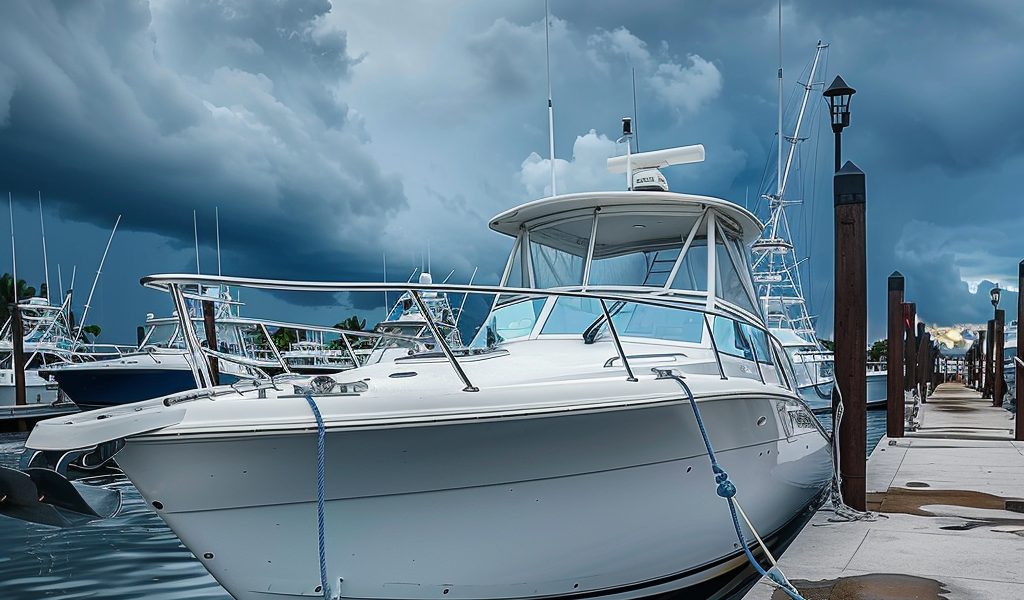As the hurricane season approaches, residents of Southwest Florida are urged to take proactive measures to ensure their safety and protect their property, particularly for boat owners. The Florida Fish and Wildlife Conservation Commission (FWC) has released essential guidelines to help boaters prepare for severe weather conditions.
One of the first steps recommended by the FWC is to move your vessel to a safe location if possible. For those with trailered boats, it is advised to haul them out of the water and park them far from tidal areas. This precaution applies not only to larger boats but also to smaller watercraft like kayaks and canoes.
If relocating the vessel is not an option, boaters should secure their boats in the marina. This involves doubling all lines and rigging cross spring lines both fore and aft. It is crucial to attach lines high on pilings to accommodate any tidal rise or surge caused by the storm.
For boats that are anchored, moving them to the most sheltered area is recommended. Boaters should set out multiple anchors using a 10:1 scope ratio, which means for every foot of water, there should be ten feet of anchor line deployed. Additionally, it is advisable to remove canvas coverings and secure or take down sails to minimize wind resistance.
If a vessel will remain on a mooring, it is important to ensure that the mooring is robust enough to handle the weight and force of the boat during the storm. Boaters should inspect the chains and swivels connecting to the mooring buoy and reinforce the pendant to prevent breakage.
Before the storm hits, all loose items on the boat, including life jackets, life rings, and Electronic Position-Indicating Radio Beacons (EPIRBs), should be removed and stored in a secure indoor location. This step is vital in preventing these items from becoming hazardous debris during the storm.
Boaters can utilize the Florida Boat Ramp Finder to locate nearby ramps for launching or retrieving their vessels. Additionally, it is essential to cover all lines to prevent chafing during the storm. Wrapping lines where they pass through chocks with materials such as tape, rags, rubber hoses, or leather can help protect them from wear and tear. Installing fenders, fender boards, or tires can also shield the boat from rubbing against piers, pilings, or other vessels.
Another critical preparation step is ensuring that batteries are fully charged to power automatic bilge pumps throughout the storm. Boat owners may consider adding backup batteries and should turn off any non-essential electrical devices to conserve power.
During severe weather events, it is crucial to prioritize safety. Boaters are strongly advised not to stay onboard their vessels or venture into rough waters. Winds during hurricanes can exceed 100 mph, and tornadoes are often associated with these storms, posing significant risks to individuals on the water.
Boat owners should familiarize themselves with Florida laws regarding mandatory marina evacuations, as outlined in Chapter 327.59 of the Florida Statutes. Monitoring weather broadcasts and adhering to evacuation orders is vital for ensuring personal safety and the safety of others.
After the storm passes, it is important for boat owners to report any issues to the FWC, including damage to marinas and waterways. The FWC can provide information on eligibility for disaster relief through Small Business Administration loans for affected businesses.
Additionally, boaters should report any missing or damaged waterway markers and notify authorities about storm-damaged boats that may have been lost or abandoned. Taking these steps not only helps in recovery efforts but also contributes to the overall safety of the waterways.
By following these guidelines, boat owners in Southwest Florida can better prepare for the challenges posed by severe weather and protect their vessels during hurricane season.





